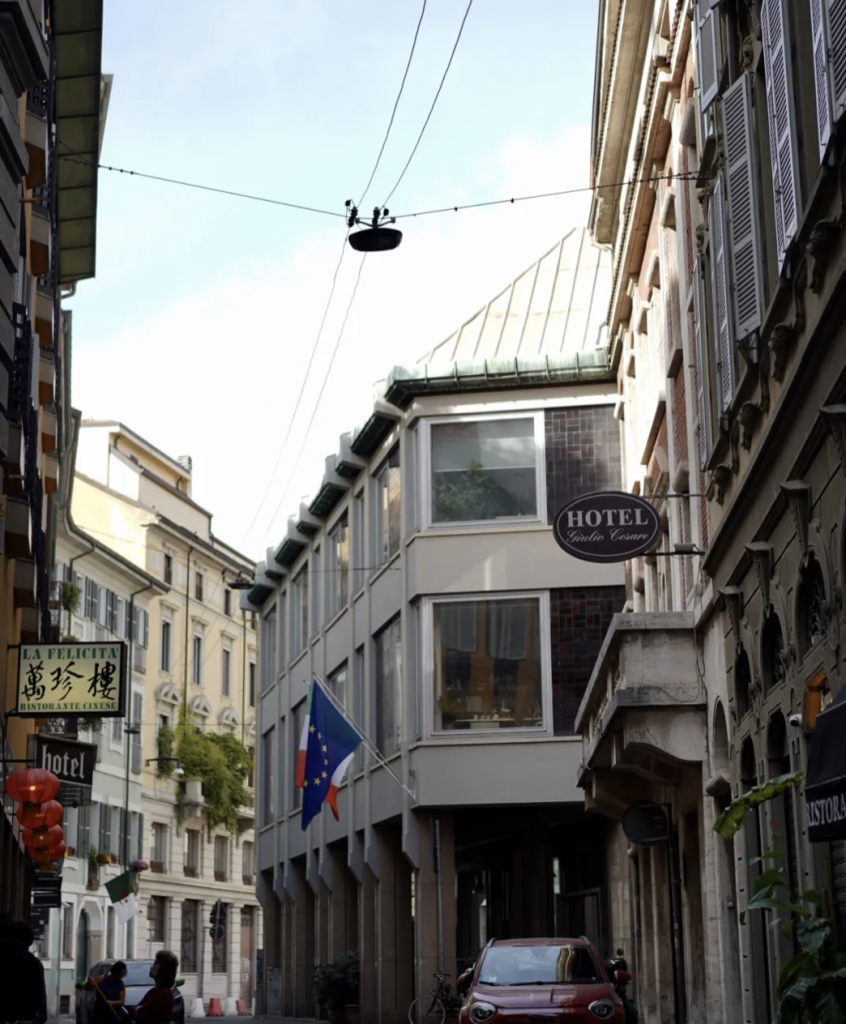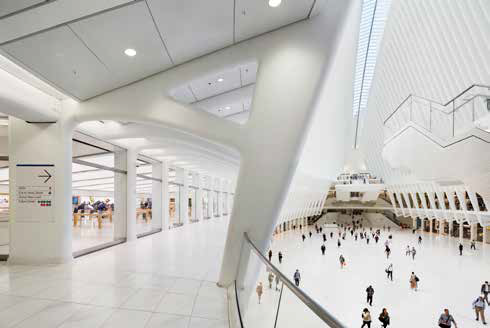For the vast majority of Chinese people, all they need to go out is a mobile phone. For foreign tourists who are not familiar with the language, various mobile phone software often make them feel at a loss when facing the complex transportation network. The unfamiliar mobile phone payment methods and electronic maps seriously affect their travel and shopping, but also aggravate the gap caused by the language barrier, and greatly reduce their experience of traveling in China.
According to this actual situation, the living facilitation measures represented by “large credit card swiping, small code scanning and cash cover” vigorously promoted by the Chinese government are constantly upgrading. Not only that, on July 31, BEIJING introduced the “BEIJING PASS” for foreign visitors to China for the first time. It has further improved the diversified payment service system, connecting multiple scenes such as transportation, ticket purchase in scenic spots, and shopping in supermarkets, greatly improving the payment convenience of foreign tourists. It is understood that “BEIJING PASS” has realized the full coverage of Beijing rail transit, Beijing bus, Beijing suburban railway, Beijing cruise taxi and other traffic scenes. With the “BEIJING PASS”, visitors can swipe the card to purchase tickets at 30 well-known parks and scenic spots in Beijing, including the Summer Palace, Temple of Heaven and Badaling Great Wall. Convenient credit card consumption at 20 designated (authorized) merchants in Beijing, such as Watsons, Wumart supermarket, etc. In addition to Beijing, Tai ‘an in Shandong Province, Qujiang New Area in Xi ‘an, Chongqing and other places have put forward relevant measures to open up the last kilometer of convenient travel for inbound tourism.

Third, for the vast majority of tourists, accommodation plays a key role in enhancing the comfort and experience of travel. When it comes to inbound tourism, the problem of “foreign-related hotels” will be mentioned again. Regarding the provisions of “foreign-related hotels”, the earliest policy is to refer to Article 25 to Article 28 of the “Provisions of the People’s Republic of China for Evaluating the star rating of tourism (foreign-related) hotels” promulgated in September 1988, and the state applies a tourism (foreign-related) business license system to tourism (foreign-related) hotels issued by the tourism administration department, that is, the tourism Bureau. All newly built hotels must obtain the preparatory star rating and tourism (foreign) business license given by the hotel star rating agency, before they can conduct tourism (foreign) business. Although with the continuous development of The Times, many relevant policy barriers have long been broken, there are still some hotels that receive few foreign guests all year round, or for cost considerations, are not willing to take the initiative to apply for foreign-related business qualifications, and refuse to receive overseas personnel on the grounds of no foreign-related qualifications. According to the survey, this phenomenon is more obvious in economy hotels, small and medium-sized cities, and in non-first-tier cities, the number of hotels that do not receive foreign guests has increased significantly.
On the issue of the imperfect “foreign-related hotel”, the Notice on Several Measures to Facilitate Accommodation for overseas personnel jointly issued by the Ministry of Commerce and other seven departments was released on July 25. The notice focuses on eight aspects, including operation in accordance with law and compliance, improving hotel reception capacity, strengthening industry self-discipline, giving play to the role of the platform, optimizing registration management, smooth service channels, improving payment convenience, and creating a friendly atmosphere, to further facilitate overseas personnel to stay in China.
Dai Bin, president of the China Tourism Academy, said that in addition to long-distance transportation costs, the top three spending items for inbound foreign tourists are shopping, accommodation and dining. Shopping is the biggest expense, accounting for about 25 percent. According to data from the National Immigration Administration, the average daily consumption of foreigners visiting China is 3,459 yuan, which is expected to directly stimulate consumption of more than 100 billion yuan. Who caught this wave of money? Who has won the favor of foreign tourists in the popular “China Travel”?
While “China Travel to China” is popular, the hashtag “China Hotel” has also swept overseas social media platforms at a very fast speed. From the videos of foreign tourists, it can be seen that their attention is mainly focused on the intelligent elements of the hotel. When foreign visitors enter the room, automated curtains, telephone ordering, wireless charging facilities, robot food delivery service, intelligent voice control system and so on make them say “Amazing”!
The smart hotel, which has been frequently praised by foreign tourists, has greatly improved the accommodation experience of domestic and foreign tourists. Smart hotel is the concrete embodiment of smart city construction to help the high-quality development of cultural tourism, relevant data show that the national smart hotel is growing at a rate of 10%-15% every year, and the intelligent transformation market of hotel rooms in major cities in the country exceeds 100 billion yuan. Digital hotels, which can be seen everywhere, have easily won the favor of foreign tourists by creating high-quality and intelligent accommodation services.
In addition to digital hotels, foreign tourists also praised many technological experiences, such as drone food delivery, driverless taxis, and mobile payments. These scientific and technological experience projects rely on the core technologies in the field of artificial intelligence in China to flourish, and at the same time promote the construction of smart cities in China, but also show foreign friends that China is prosperous and strong. In May this year, the National Development and Reform Commission and other four departments jointly issued the “Guidance on Deepening the development of smart cities and Promoting the Digital Transformation of cities”, China’s smart city development and urban digital transformation has entered a new stage, and the city is becoming a perceivable and thinking intelligent agent. Together with “China Travel China Tour”, there is also a world-leading “China Black technology”.

Magnificent mountains and rivers, thousand-year civilization, surveys show that foreign tourists are especially keen on immersive cultural experiences in addition to punching various scenic spots and historic sites. Wear Chinese national costumes to walk the ancient historical and cultural corridor, experience brewing a pot of tea in the quiet environment of the teahouse, experience and learn various intangible cultural heritage skills in the streets and alleys… This time, the model of intangible cultural heritage + tourism just hit the heart of foreign tourists. And on August 18, Tianjin’s first intangible cultural heritage hotel – Golden Emperor Hotel was unveiled. The hotel’s overall design, decorative details and service items are fully integrated with local intangible cultural elements, so that guests can feel a strong regional cultural atmosphere during their stay. At the same time, according to the different needs of guests, the hotel will provide customized non-body examination services for guests.
The recovery and development of inbound tourism market will greatly promote the development of China’s economy. In the huge flow brought by the explosion of “China Travel”, the benefit is the entire Chinese cultural tourism market. Whether it is a digital hotel, intangible heritage theme hotel, or a technological experience project, the most popular and extremely brilliant they rely on their own “hard power”.
The popularity of “China Travel” is a positive signal for the development of China’s inbound tourism market and an opportunity for the development of China’s inbound tourism market. China has been exploring the road to the center of the world stage for many years, and going out to see the world is to better introduce and let the world see the booming China. Taking the “China Travel China” overseas network explosion, how should we “add fuel to the fire” to achieve the sustainable development of China’s inbound tourism market?
Advancing with The Times
Tell the Chinese story well
The key to letting the world hear China’s voice and “adding fuel to the fire” is to tell China’s story well with The Times. Recently, the “Black Myth: Wukong” game opened, detonating the Internet hot search. The pre-sale volume of 1.2 million copies and the pre-sale amount of nearly 400 million yuan on the Steam platform proved the enthusiasm of game players in China and even the world for this game, and also broke the “monopoly myth” of 3A games in Europe and the United States for a long time. The popularity of “Black Myth: Wukong” not only represents the rise of domestic games in China, but also makes us understand the importance of telling Chinese stories well with The Times. Because a game set off a wave of “Chinese story learning heat”, because a game of China’s 36 punch points that are used as the background of the game ushered ina large wave of traffic, because a game of “China Travel China Tour” continues to be hot.
Polish the details
Continuously optimize the visitor experience
The popularity of “China Travel China Tour” is an important manifestation that the “blocking point” of inbound tourism development has been solved. At the same time, the explosion of “China Travel China tour” has also further promoted the process of China’s inbound tourism to solve the problems. In the praise of foreign friends, we should see the good of China, but we can not ignore some shortcomings that still exist. Customs clearance, payment, scenic service, accommodation, we start from many aspects, constantly dredge the blocking points, polish the details, and improve the travel experience of tourists. In the future, in order to continue to make breakthroughs in China’s inbound tourism market, details are required



